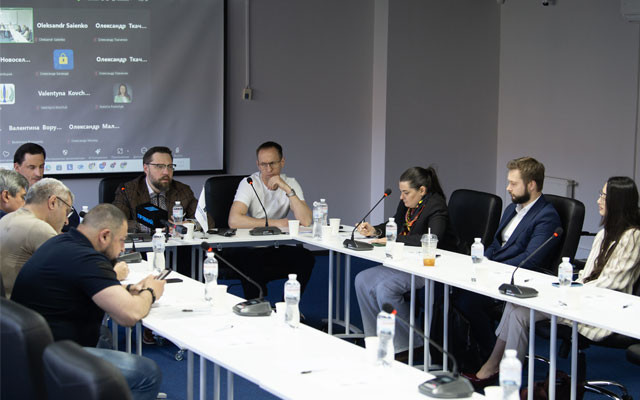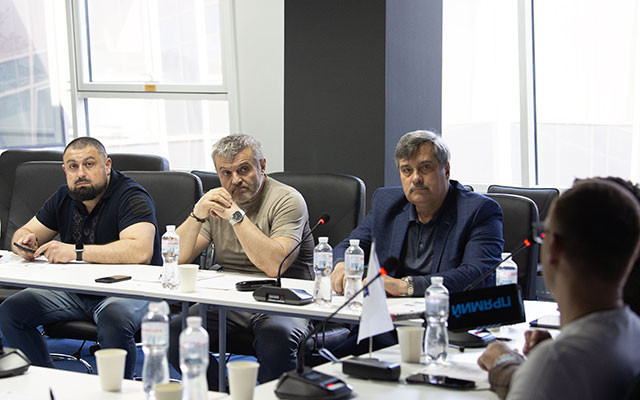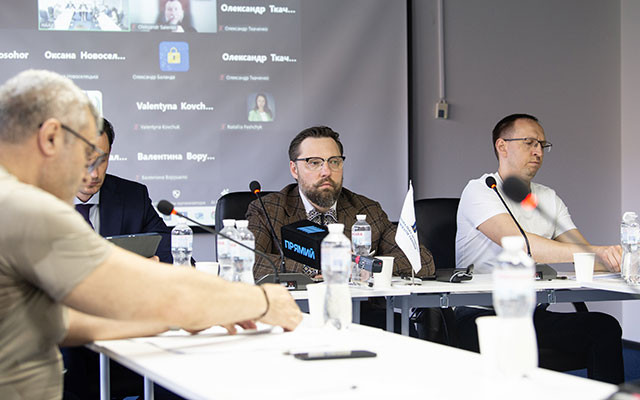
Combat immunity: who should evaluate the commander's decision and how?



The protection of military personnel acting in conditions of extreme danger and stress requires clear legal regulation. The issue of bringing defenders to criminal liability for their combat decisions is of particular importance in the context of full-scale armed aggression.
The Ukrainian National Bar Association acted as a professional platform for scholars, MPs, representatives of the military command and held an independent professional discussion on «Combat immunity as a mechanism of legal protection of the military». The event was moderated by Oleksiy Shevchuk, Chairman of the UNBA Committee on Information Policy and Media Relations.
The experts focused on the creation of an effective system of legal guarantees for defenders, which is proposed by the draft laws registered in the Verkhovna Rada:
No. 13146 dated 01.04.2025 «On Amendments to the Criminal Code of Ukraine on Circumstances Excluding Criminal Liability for Acts and Ensuring Combat Immunity in the Conditions of Martial Law and Military Operations»;
No. 13149 dated 03.04.2025 «On Amendments to the Law of Ukraine «On Defense of Ukraine» on Improving the Legal Regulation of Combat Immunity in the Conditions of Martial Law and Military Operations».
According to Andriy Yosypov, senior instructor of the Training center for comprehensive training of volunteers DGV of the Legion D, the content of combat immunity should not be limited to the definition provided in the Law «On Defense».
«In fact, this concept was not created by the Ukrainian legislator and has its sources in international humanitarian law, - he explained. - It is a kind of institution that allows military commanders to act on the battlefield without fear of liability, including criminal liability. In Ukraine, combat immunity is reflected in three laws: Article 43-1 of the Criminal Code, the Law on Defense and the Law on the Legal Regime of Martial Law». Article 9 of the latter provides for the possibility of exemption from criminal liability for persons authorized to perform the functions of the state or local self-government bodies. According to Mr. Yosypov, the existing concepts are currently contradictory.
Armen Nersesyan, a senior researcher at the V.M. Koretsky Institute of State and Law of the National Academy of Sciences of Ukraine, drew attention to the imperfection of the Criminal Code.
«In the context in which we are talking about Article 43-1, it is practically inoperative in the current version. And whether it will work depends on those people who sit in the middle of the room in our processes," the scholar said. In his opinion, it is necessary to introduce combat immunity in this version, as proposed by draft law No. 13146. «Perhaps we will work out some specific comments together, - added A. Nersesyan. - Because I still do not understand the question of who is the subject - whether all persons are subjects of release under combat immunity».
In this regard, Serhiy Dremov, Head of the Military law edpartment of the Central legal department of the General staff of Ukraine, noted the positive aspects of the legislative initiatives. «We talked about the subject. The word «combatant» is used there. That is, it is not only the commander who makes the relevant decisions, but also a simple soldier, a private, who is also a combatant, - he said. - In fact, ‘combat immunity’ boils down to the fact that it is one of the circumstances that excludes the unlawfulness of an act. It is not an exemption from liability, but the unlawfulness of the act».
The practical aspects of bringing servicemen to criminal responsibility were explored by Lyudmyla Buymister, a member of parliament who mobilized to the Armed Forces of Ukraine.
«The State Bureau of Investigation has been given the entire responsibility for investigating war crimes. It's clear that they can't cope, they have no experience. They still open cases and send them to court. Prosecutors come, and then the cases fall apart», - said the MP. In her opinion, the worst thing about this situation is that commanders are worried that they may be judged for every decision they make. And even if an order is given and the commander has to fulfill it, he has to give the order to his subordinates, he has to assess whether everyone has the necessary forces and means to fulfill this order. «But let's be honest, we don't have a concept of post action revue in the Armed Forces of Ukraine. We don't analyze after a particular operation how well it was executed, how well the order was given, including how well the forces and means were assessed. In practice, this means that you can never prove to the higher command that they can, for example, set unrealistic, impossible tasks. And this happens very often, and not through the fault of the commander who is on the battlefield», - said L. Buymister.
But who will evaluate the error in the order, who is the expert who is able to do this - this problem was raised by Viktor Nazarov, advisor to the Commander-in-chief of the Armed Forces of Ukraine on political issues.
«There are many factors involved: the unit's capability, the level of its support, any indicators of physical, psychological, and mental fatigue, the nature of the enemy's actions, the time of year, the time of day - all of these affect the nature of the task, - the advisor said. - We usually say that there are no right or wrong decisions, only optimal or rational or irrational ones. The worst decision is the one that is not made, it usually leads to more negative consequences. If you had to make a decision and you didn't make it, it will be a 100% defeat».
V. Nazarov also outlined the criteria by which decisions should be evaluated. «The first is that the decision must be made. The second criterion is that the decision should be made in a timely manner. If it is made late or much later, it loses its value. The third component is whether the decision was reasonable. Taking into account all these points and all three elements, the evaluation is based on them», - he said.
V. Nazarov also emphasized the importance of conducting an expert review in such matters. «The legislation provides for an expert service within the Ministry of Defense. And there used to be such an expert service. But it concerned the medical field of activity and was later canceled», - the advisor said.
«So, based on the results of the roundtable, its participants came to the conclusion that combat immunity should exist, - summarized O. Shevchuk. – These bills should be amended to include the availability and necessity of expert opinions on a particular situation. We will ask scholars and lawyers to prepare proposals based on the results of the event and send them to MPs and specialized committees of the Verkhovna Rada».
© 2025 Unba.org.ua Всі права захищені
"Національна Асоціація Адвокатів України". Передрук та інше використання матеріалів, що розміщені на даному веб-сайті дозволяється за умови посилання на джерело. Інтернет-видання та засоби масової інформації можуть використовувати матеріали сайту, розміщувати відео з офіційного веб-сайту Національної Асоціації Адвокатів України на власних веб-сторінках, за умови гіперпосилання на офіційний веб-сайт Національної Асоціації Адвокатів України. Заборонено передрук та використання матеріалів, у яких міститься посилання на інші інтернет-видання та засоби масової інформації. Матеріали позначені міткою "Реклама", публікуються на правах реклами.